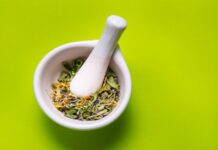Learn about the 7 foods that can raise your uric acid levels and how to manage your diet to prevent gout and other painful conditions.
High uric acid levels can cause a lot of discomfort, leading to conditions like gout and kidney stones. When the body produces excessive uric acid or fails to eliminate it effectively, the result is a condition known as hyperuricemia. This can lead to painful flare-ups and chronic health issues. You can manage your uric acid levels by monitoring your diet and making adjustments accordingly. While some foods can help reduce uric acid, others can exacerbate the problem.
What happens when the uric acid level is high?
When your body makes too much uric acid or doesn’t remove enough of it, the acid can build up in your blood. This is called hyperuricemia. High levels of uric acid can lead to health issues, such as gout, a painful type of arthritis caused by the formation of uric acid crystals in the joints. It’s also important to lower uric acid levels to prevent kidney stones, as recommended by the National Kidney Foundation. These crystals can create kidney stones, leading to severe pain.
Which foods should I avoid when my uric acid levels are high?
Here are seven foods to avoid when managing high uric acid levels.
-
Red meat
Red meat, including beef, lamb, and pork, is often high in purines, which break down into uric acid in the body. When it comes to uric acid management, reducing your intake of red meat can be a game-changer. Instead of hearty steaks, try substituting them with lean poultry or plant-based proteins, as recommended by the American Heart Association.
Tips:
- Try fish or chicken as alternatives. They generally have lower purine levels compared to red meats.
- If you must eat red meat, opt for smaller portions and focus on lean cuts.
2. Organ meats
“While organ meats, such as liver, kidneys, and sweetbreads, are rich in nutrients, they are also extremely high in purines. Consuming these types of meat can significantly raise your uric acid levels,” Nutritionist Alisha Jeswani tells Health Shots.
Why avoid them?
- They have some of the highest concentrations of purines found in foods.
- Overindulgence could lead to painful gout attacks.
Tip: Look to plant-based sources of protein, such as beans and lentils, as recommended by the British Nutrition Foundation. They offer a rich source of nutrients without the purine load.
3. Certain seafood
While seafood itself is generally considered part of a healthy diet, certain types can elevate your uric acid levels thanks to their high purine content. Shellfish, such as shrimp, crab, and mussels, are particularly notorious for their high mercury levels.
- Seafoods to avoid: Anchovies, sardines, mackerel
- Alternatives: When in doubt, opt for fish that are lower in purines, such as salmon or cod, which are generally considered safer options according to Harvard Health.
4. Sugary beverages
High-fructose corn syrup, commonly found in soda and sweetened beverages, can raise uric acid levels. Fructose is the only carbohydrate known to increase uric acid production, making sugary drinks a considerable risk if you’re trying to keep your levels in check, as per the International Journal of Molecular Sciences.
Tips:
- Even fruit juices with added sugars can be harmful. Opting for water or unsweetened beverages can make a significant difference, according to a study published in the journal Nature Portfolio.
- If you’re looking for something flavoured, herbal teas or infused waters can be great low-sugar alternatives.
5. Alcohol
Alcohol, especially beer and spirits, is known to affect uric acid levels adversely. Beer contains high levels of purines, while alcohol consumption can impair the kidneys’ ability to eliminate uric acid.
What to consider:
- Alcohol can lead to dehydration, which also affects uric acid levels, as per the journal Clinica Chimica Acta.
- If you’re struggling with high uric acid, it’s best to limit or altogether avoid alcohol.
6. Processed foods
When convenience takes precedence, processed foods often contain hidden sugars and unhealthy fats that can contribute to metabolic issues, including elevated uric acid levels, as noted in Aspects of Molecular Medicine.
What to avoid: Be cautious of fast foods, packaged snacks, and ready-made meals that often contain high levels of refined sugars and unhealthy fats, as recommended by the British Heart Foundation.
Healthier choices:
- Preparing meals at home with fresh, whole ingredients can be more beneficial.
- Focus on whole grains, fresh produce, and lean proteins, as recommended by Harvard Health.
7. High-fat dairy
While dairy products can be beneficial to some extent, full-fat varieties tend to have a higher purine content. Whole milk, cream, and certain cheeses should be consumed cautiously, as per the U.S. Food & Drug Administration.
- Smart swaps: Opt for low-fat or non-fat dairy options. They can provide the necessary nutrients without the added purines.
- Other options: “Plant-based alternatives, such as almond milk or soy yoghurt, are good substitutes, offering a lower purine count”, says the nutritionist.
How to control uric acid levels?
Managing high uric acid isn’t just about avoiding certain foods; it’s about embracing a lifestyle that supports your overall health. Drinking plenty of water, maintaining a healthy weight, and including uric acid-friendly foods like fruits, vegetables, and whole grains can make the battle against hyperuricemia much more manageable.





